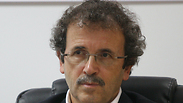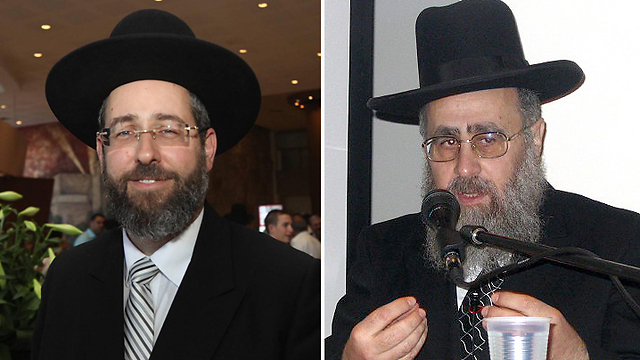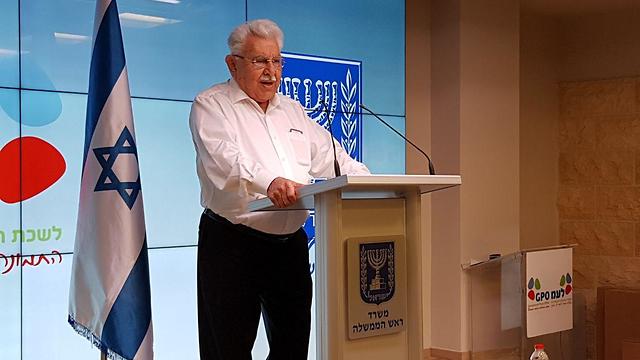


It is up to chief rabbis to preserve us as one people
Op-ed: On the practical side, religious conversion hasn’t ‘delivered the goods’ so far. Although it has been officially declared a national mission, less than 10 percent of non-Jewish immigrants and their offspring have completed the process. As a result, one in 20 non-Arab Israelis isn’t recognized as a Jew, despite having made aliyah under the Law of Return.
As far as they are concerned, Nissim, the son of a former chief rabbi, will bring about “the destruction of Judaism.” Is that true?
There is an agreement that the only way to become Jewish is through the religious conversion process. There is a dispute as to the nature of the process—who has the authority to perform the conversion, and according to what standards? —but almost everyone sees conversion as the only way into the collective. This issue is reflected both in the State of Israel’s laws and in public opinion. But this agreement could be undermined in the current generation.
In the past, there was no distinction between Judaism as a religion and Judaism as a nationality. The early converts believed they were joining Judaism in its double sense, which is one: Religion-nationality. Today, on the other hand, many perceive Judaism as a nationality or as a culture that doesn’t carry any religious commitment. According to them, if one can be a secular Jew, why should observing the mitzvot of the Halacha—either Orthodox or other—be a relevant measure for joining Judaism, and why should rabbis hold the keys of nationality?
On the practical side, religious conversion hasn’t “delivered the goods” so far. Although conversion has been officially declared a national mission, less than 10 percent of non-Jewish immigrants and their offspring have completed the process. As a result, one in 20 Israelis (who are not Arab) isn’t recognized as a Jew, despite having made aliyah under the Law of Return. When it turns out that the religious door is blocked, the pressure to adopt alternative ways for joining Judaism will likely increase.
This isn’t an insignificant matter: We have been living with the agreement that conversion is an exclusive criterion for joining Judaism for many generations. It’s what allowed the group to preserve itself as one ethnoreligious unit in the darkness of the diaspora, without diminishing beyond recognition.
Paving a new way to join Judaism in our generation, not through conversion, is a radical change and its implications on the nation’s future are unclear. Heading in this direction, with the dangerous unknown it conceals, can only be prevented if it turns out that the rabbis responsible for the conversion are using their authority in a way that provides an answer to the generation’s needs.
This is the right background for an evaluation of Moshe Nissim’s recommendations, which aim high: To regulate the issue in legislation determining that the state would only recognize state conversions performed in conversion courts, which will be established through a new conversion authority at the Prime Minister’s Office.
Since it creates a balance between different interests, the proposal is exposed to attacks from all sides: It revokes the Chief Rabbinate’s control over state conversion processes but guarantees that conversions in Israel will only be performed according to Jewish Law. It doesn’t recognize conversions performed by non-Orthodox streams in Israel but enforces the state’s recognition of such conversions performed abroad under certain conditions.
Furthermore, it suggests reserving a place for the different streams’ representatives in the committee that appoints the heads of the conversion courts, thereby upgrading the streams’ status in Israel.
The proposal seeks to facilitate a responsible yet friendly halachic-Orthodox conversion, in the spirit of Beit Hillel. Nevertheless, it has some shortcomings: There is a real concern that Beit Shamai—the Haredim and their affiliates—will take over, using their political power vis-à-vis Israel’s prime ministers, who appoint the authority head.
The required solution is giving city rabbis the option to create conversion courts, which would be recognized by the conversion authority. That would guarantee the existence of responsible courts, which would be friendlier to the converts and would be manned by rabbis recognized by the Chief Rabbinate, like the Tzohar rabbis.
The chief rabbinates should quit the aggressive reactions and internalize the far-reaching implications of their passivity and halachic strictness. It is their hands to decide whether to preserve us as one people.
Yedidia Z. Stern is vice president of the Israel Democracy Institute and a professor of law at Bar-Ilan University.

















